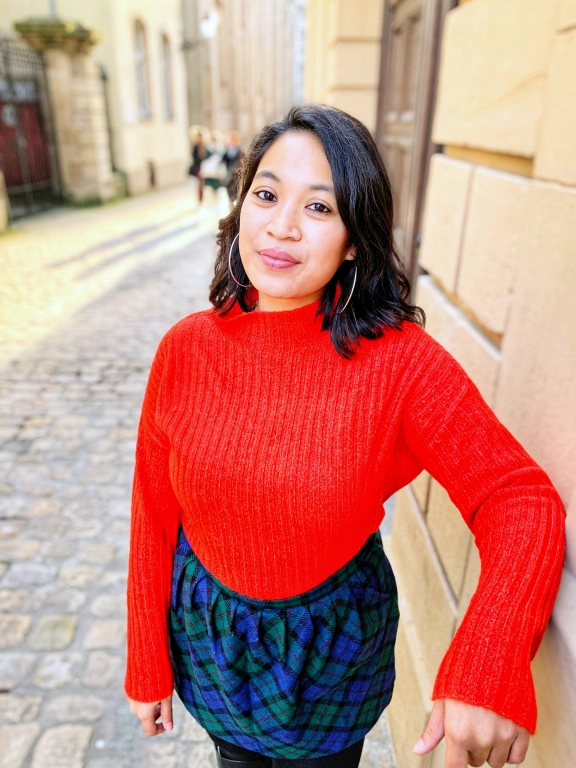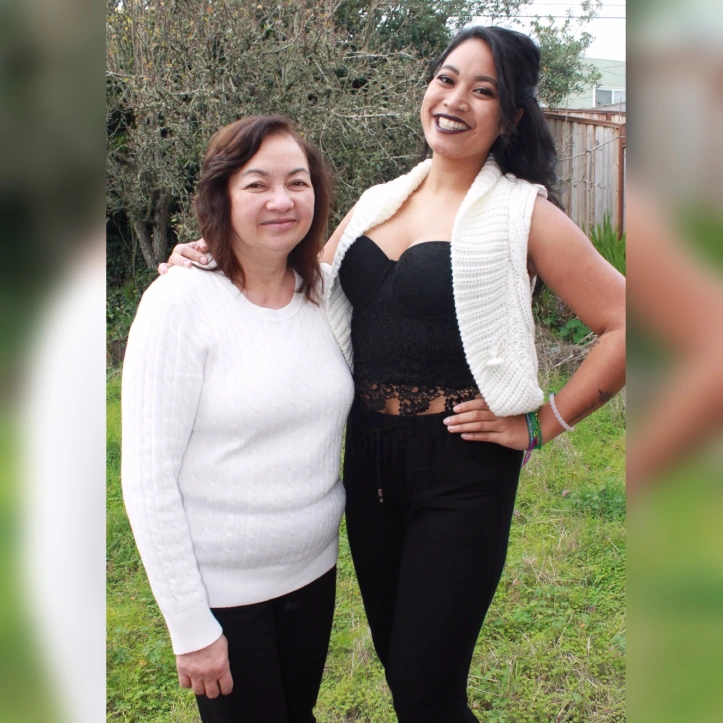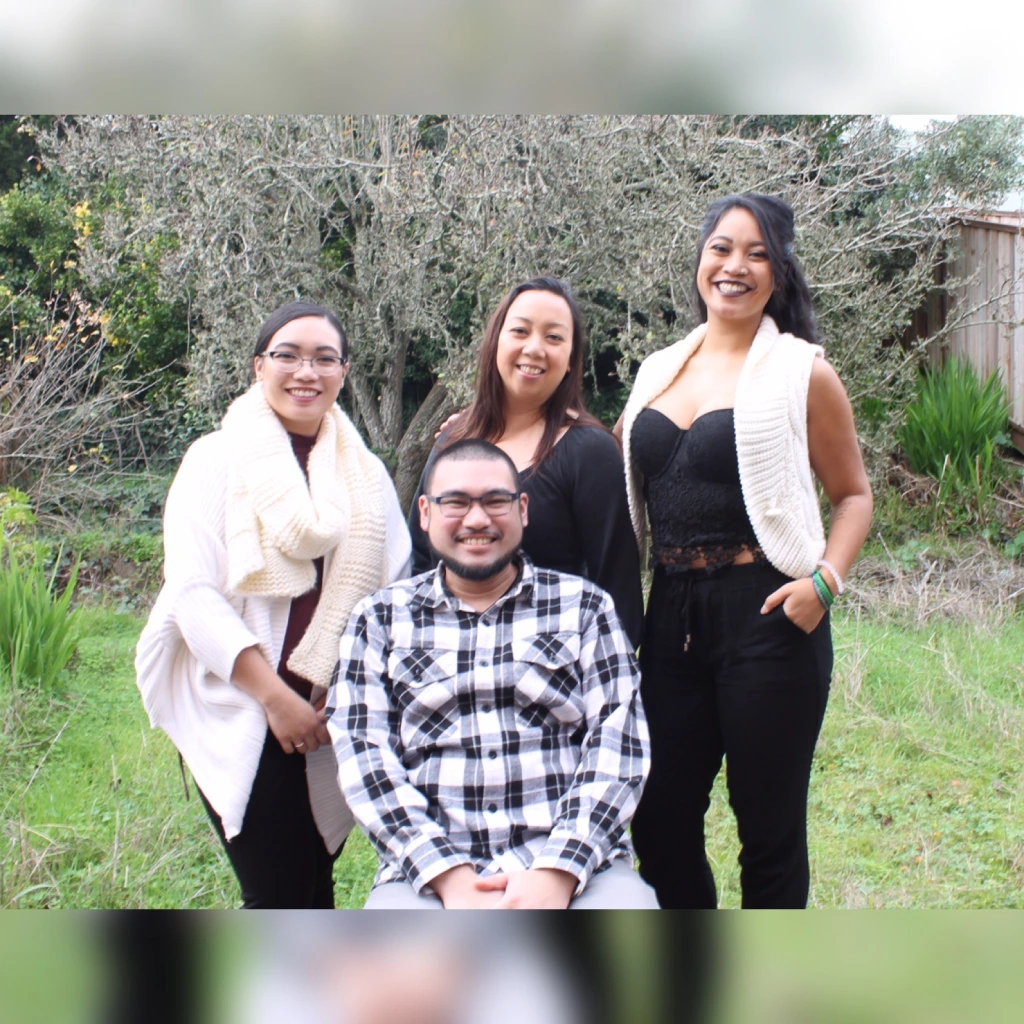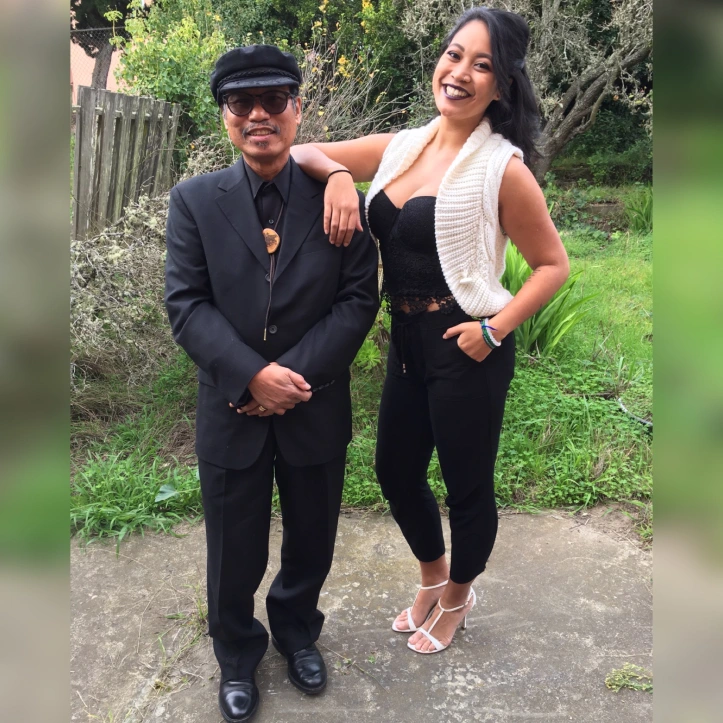Originally published on July 30, 2020 | minor edits made January 17, 2024
I’ve tried to write this piece at least 5 times. Talking about my non-traditional journey in life as a Filipina-American is something I WANT to share. Highlighting more BIPOC stories and experiences of our travels and lives abroad, because I don’t know many others like me, is the whole reason why I built my platform.
So for a few weeks I couldn’t understand why it was difficult for me to just sit down and write about my personal experience as a Filipina-American traveler and expat. Every time I tried, I hit a mental block. Even now at 11pm, just 9 hours from planning to publish this post I’m still struggling to wrap it up.
I also had a 2-hour conversation with someone who used to have a significant role in my life about what I’m sharing, which was NOT easy. The stuff we talked about and what I’m writing here comes from an extremely vulnerable place. However, as we close out BIPOC Mental Health Month, I feel the need to speak on it.
As my brother and I were talking about how our parents see us in comparison to our siblings, cousins, etc., it hit me:
I AM HARBORING FEELINGS OF GUILT AND SHAME REGARDING CERTAIN ASPECTS OF MY LIFE’S JOURNEY.

Before I delve into all of that, let’s throw it back a decade to May 2010. *cue the sound of a VHS tape in one of those red car rewinders to transport you back in time; LOL did you have one of those?!*
I was a fresh-faced, first generation Filipina-American college graduate. Not the first in my family, as my father earned his degree in the Philippines, but the first of me and my 3 siblings. I proudly held a Bachelor of Arts in Communication from San Diego State University.
And then came the infamous question: “What will you do with that degree?” To be honest, 22-year-old Ava didn’t have a straight answer to that the entire time she studied at SDSU; which led to many family members suggesting or asking, “Why don’t you become a nurse?” (Nursing is a career path many Filipinx-Americans venture on and is held in high regard within our culture.)
Earlier this month, I opened up on Instagram about the taboo of addressing mental health issues within the Filipinx community. My mentality growing up was to work hard, get good grades, aspire to be a doctor/lawyer/any “stable” job, and feeling like I couldn’t be anything but happy, because my immigrant parents had sacrificed so much to come to this country and I had to make them proud.
That question irritated me so much back then because even though I was in college and eventually obtained my degree, a part of me felt like I was failing my parents. I chose an unexpected route and other than knowing that I wanted to work with youth, I didn’t have a vision as to what the rest of my life would look like.
Fast forward to present day: Filipina-American me is still NOT a nurse (or an engineer, or working in any high-earning “stable” career). Even worse in some people’s eyes, I’m currently unemployed after returning from four years overseas and am living under my parents’ roof again.
Don’t get me wrong, my parents are not horrible people who look down on me, nor am I writing all of this to complain about them. They just grew up with and passed down the colonial mentality that is so prevalent in our culture. Like many immigrant parents in the USA, they wanted “The American Dream” for their American children, which is essentially to get a degree, find a stable job that pays well enough to buy a house, and settle down.
To add to that, being American usually means who you are and your success is seen as what you do for a living. So to be somewhat dependent on my parents after 5+ years of “success” in the corporate relocation industry followed by 4 years of “success” teaching English across the world, that worry of failing them has reared its ugly head.
I know that in the end my parents want me to be happy and they’ll always support me because I am their child. But as children of immigrants, many of us grow up acutely aware of the enormous sacrifices our parents made when it came to their own hopes and dreams. We place a heavy responsibility and expectation on ourselves to live our lives in a way that proves their suffering was not in vain. Thus my feelings of guilt and shame for choosing a non-traditional path and feeling like maybe they still don’t approve of my choices even though I’m a grown ass adult.
Bringing me back to my original question: am I a failure?
Though I didn’t follow the path that was expected of me, and a part of me still maintains certain worries, I know in my heart that I AM NOT A FAILURE.
My success is not in becoming a nurse or choosing what was expected of me.
It’s finding the courage to choose a non-traditional path to follow my dreams,
It’s realizing what I am passionate about – something others never have the opportunity to do.
It’s in CHOOSING ME and following my heart to what makes me happy.
My success is not in working to make a six-figure income.
It’s breaking the generational curse of financial illiteracy.
It’s learning – from other Filipina-Americans and Brown/Black women *COME THRU REPRESENTATION!* – how to make my money work for me so that I can build generational wealth, something most of our grandparents and parents probably never even thought of.
It’s becoming debt free on a $20,000-$25,000 salary while still being able to live my dreams of traveling around the world. My episode about this with Yo Quiero Dinero podcast just dropped today! *yes, yes… shameless plug*
My success is not in perpetuating the colonial mentality for “The American Dream.”
It’s choosing to unpack the generational trauma which has caused us, as a collective, to have anti-Brown/anti-Black/anti-Filipinx mentalities and prefer white/American over anything else.
It’s learning and unlearning about our roots and ourselves as Filipinx so that we don’t pass those toxic mentalities to future generations.
It’s unapologetically embracing my identity as a Filipina-American, because I am not one or the other. I am BOTH.



This piece didn’t end up being the one I WANTED to write, but it ended up being the one I needed to write. I couldn’t share the story of my journey without first addressing these feelings and mindsets that were affecting my mental health.
Mental Health America states that because of the stigma in our cultures, “Asian Americans are the least likely racial group to take actions on their mental health.” We are more likely to turn to friends and family, but not all of us have a strong support system.
Though BIPOC Mental Health Month is coming to a close, the work to end the stigma for future generations still remains. But in recent years, we Millennials and Gen Z Filipinx-Americans have shifted the narrative surrounding the taboo around mental health within our communities.
We’ve been prioritizing it more than ever by unlearning toxic mentalities, unashamedly going to therapy to address traumas and issues we need to work through, or finding joy in our lives. And though it was scary and a little anxiety-inducing to write about such a delicate subject, my success is in being able to share my adventures with you all – even the not so fun and glamorous ones.
With wanderlust & ‘til next time,
Ava

